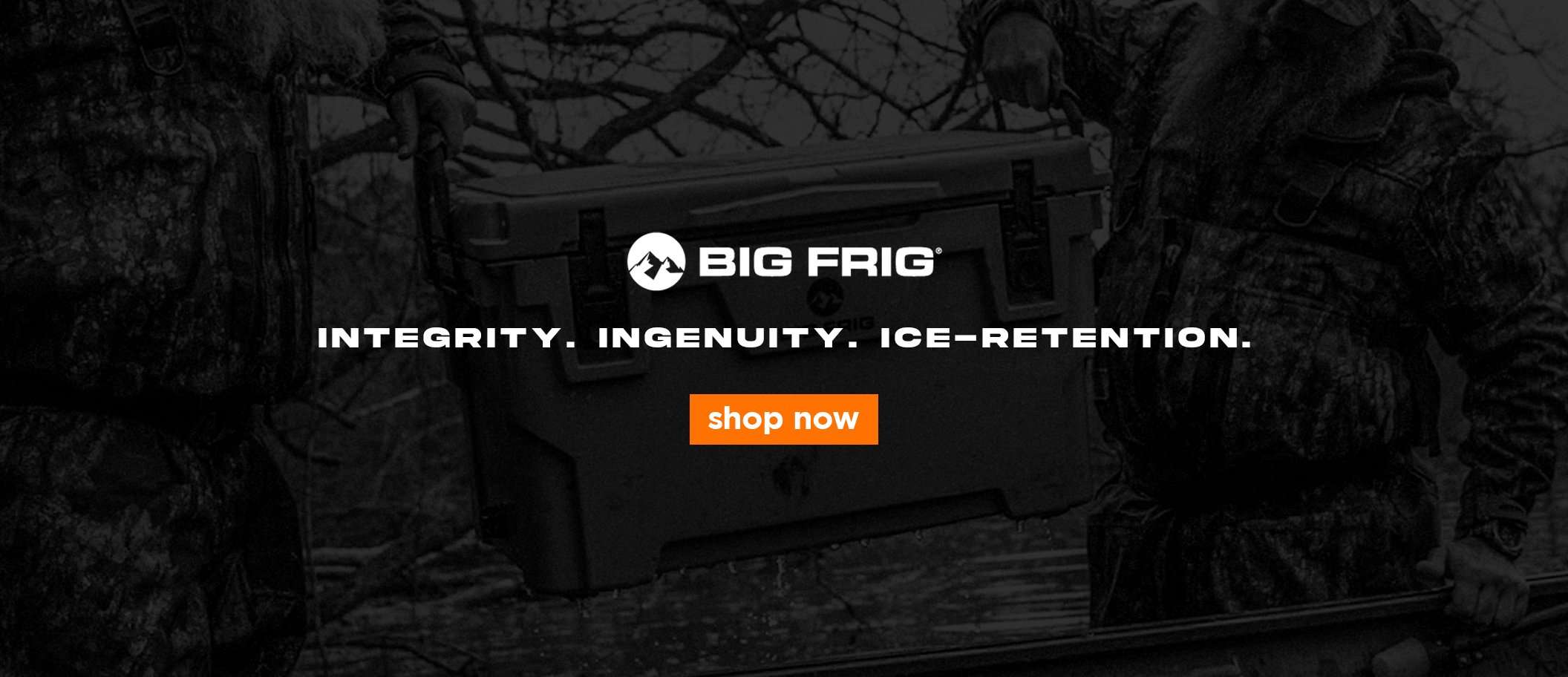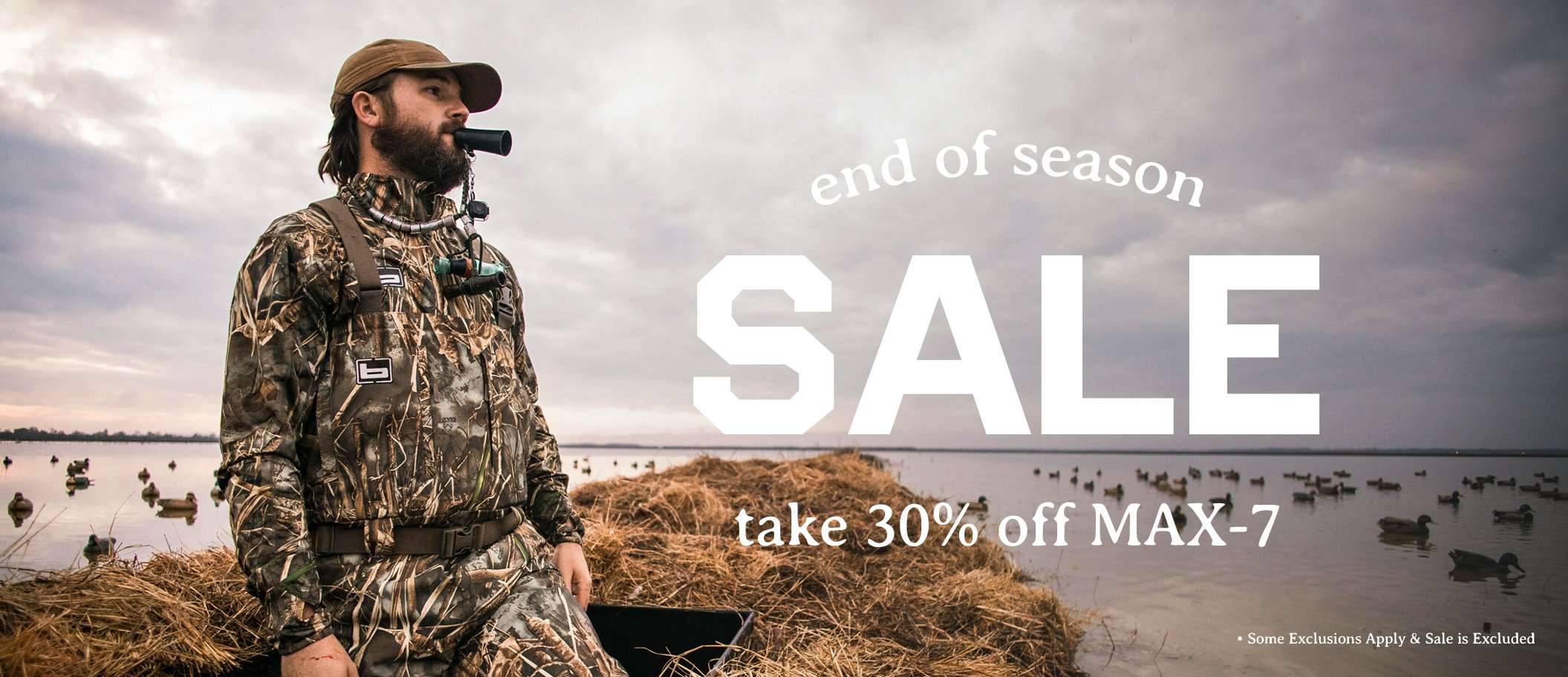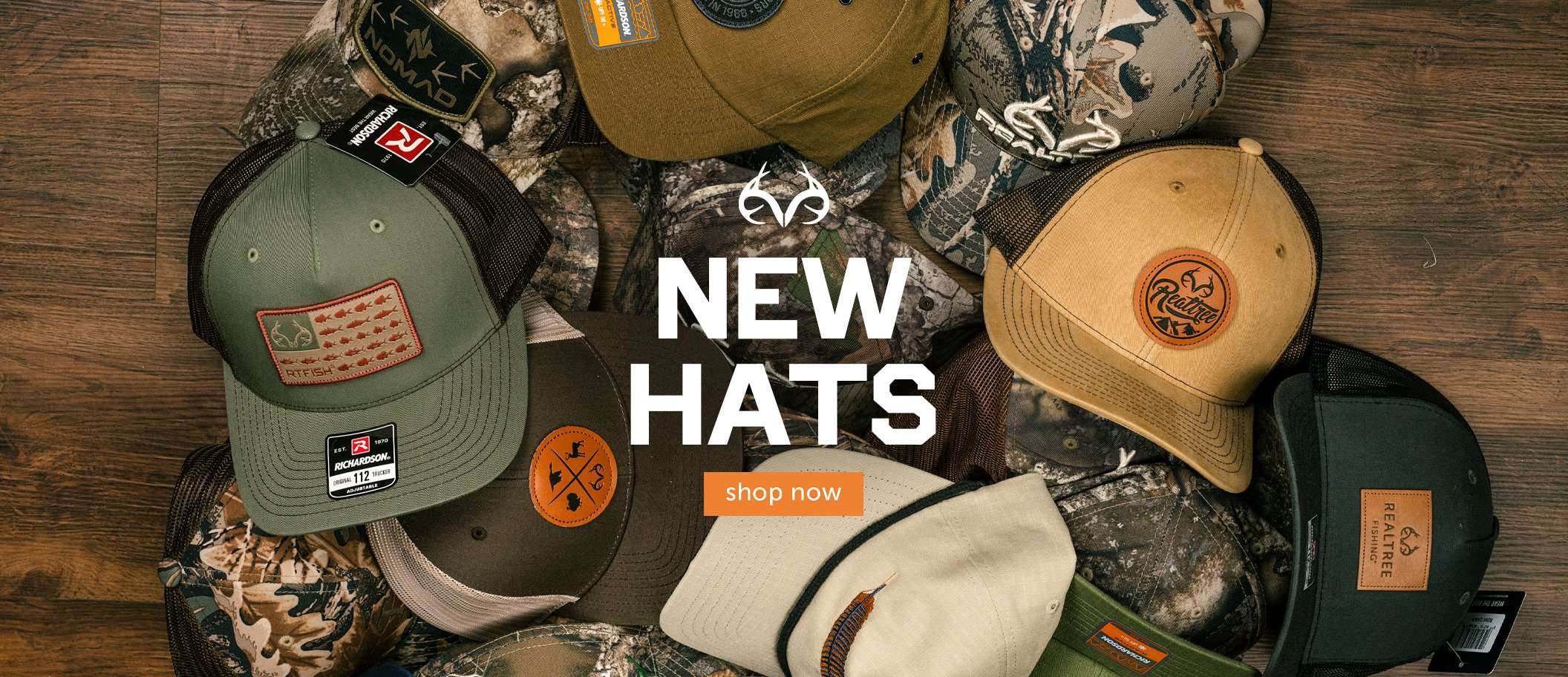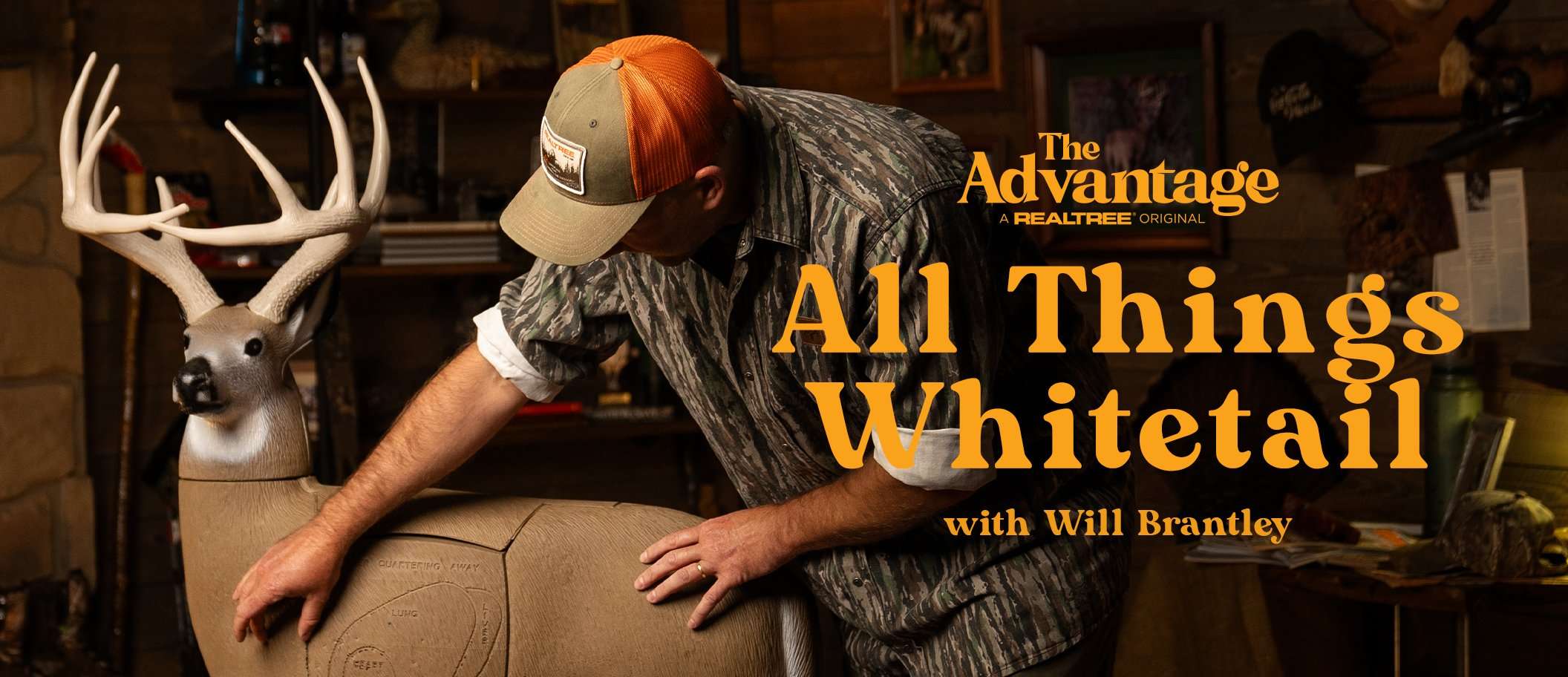There are still landowners who will let you hunt with a handshake, but you need to know how to conduct yourself from start to finish
The silence was deafening as I hiked the entire length of a linear-shaped public parcel. I was discouraged as I reached the farthest boundary — about 2 miles from the parking area. Not a single gobble. As a last resort, I hiked uphill to gain some elevation and extend my earshot. I called, and gobbles finally echoed throughout the Nebraska canyons. But there were two problems.
First, when I spotted the two gobblers, I noticed they were accompanied by hens. Second, they were at least a couple hundred yards off the public boundary on private land. These gobblers were forbidden fruit where they stood, plus they had all the hens they could possibly want.
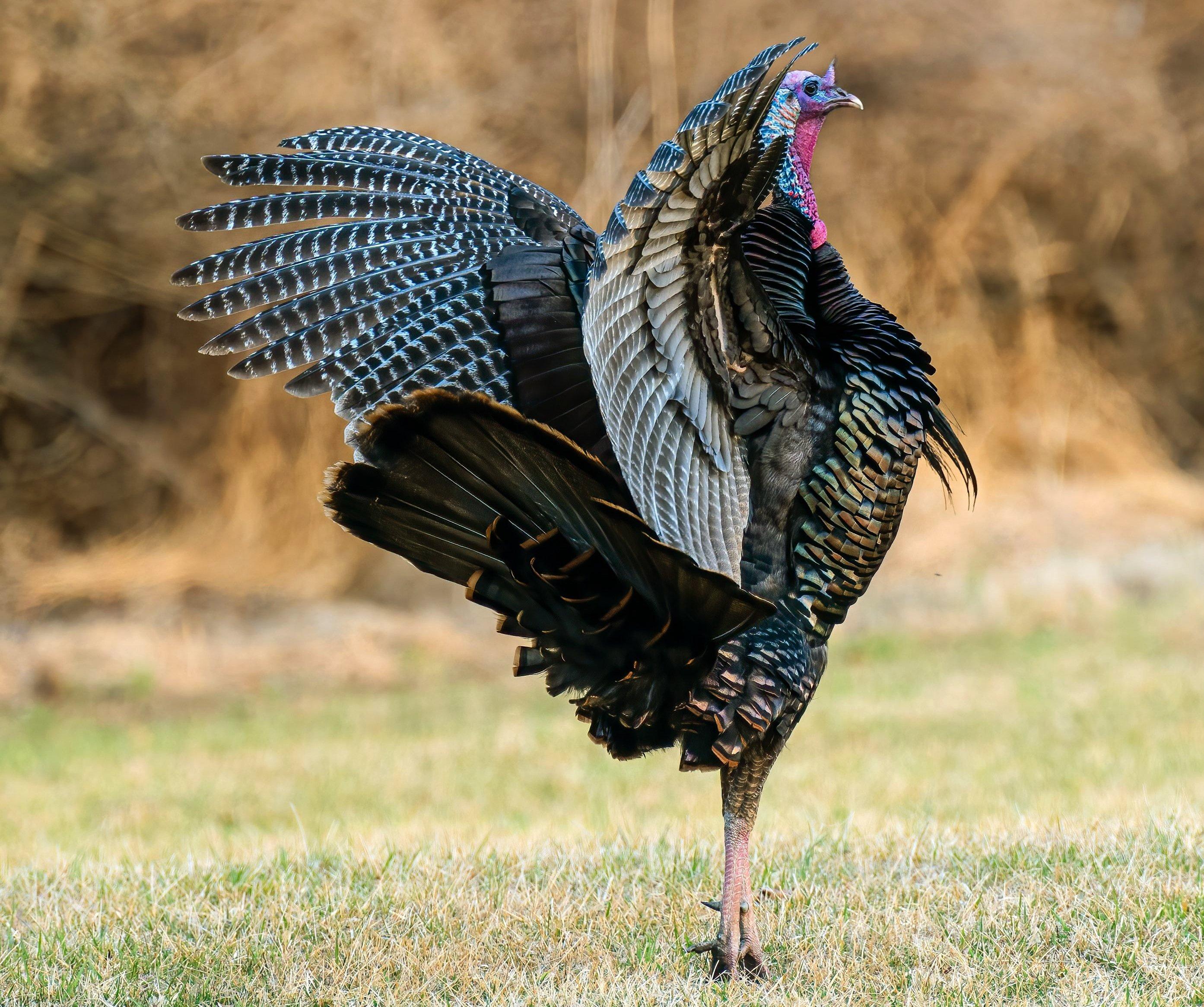
Seeing is believing. If you spot a gobbler on private land, it never hurts to try and get permission. Image by Bill Konway
My mind’s wheels were turning the entire way back to my vehicle. I returned to the motel and used my mapping resources to determine which property the birds were on. A house was situated on the small property, so I took a deep breath, and then my wife and I hopped into the vehicle.
Soon, we were driving up a several-hundred-yard driveway to a home hidden in the pines. My wife was certainly apprehensive about my plan, but I had done this many times before around home with great results. Still, I was slightly nervous as I stepped onto the front porch and gently rapped on the door.
The door swung open and I was immediately invited in where I visited with an older couple for about 45 minutes. I’m sure my wife — waiting in the vehicle — was imagining the worst. But inside the home, I was quickly granted hunting permission, and the rest of the interaction was about where I was from, what I do for a living, and why I’d driven all the way to Nebraska to hunt turkeys. My wife was never more thrilled to see me than she was when I walked out that door bearing good news.
The very next morning, the two toms that were forbidden fruit the previous day strutted right up to our decoys 5 yards outside our ground blind. I leveled one of them with my bow, and our hunt went from zero to hero simply by knocking on a door.
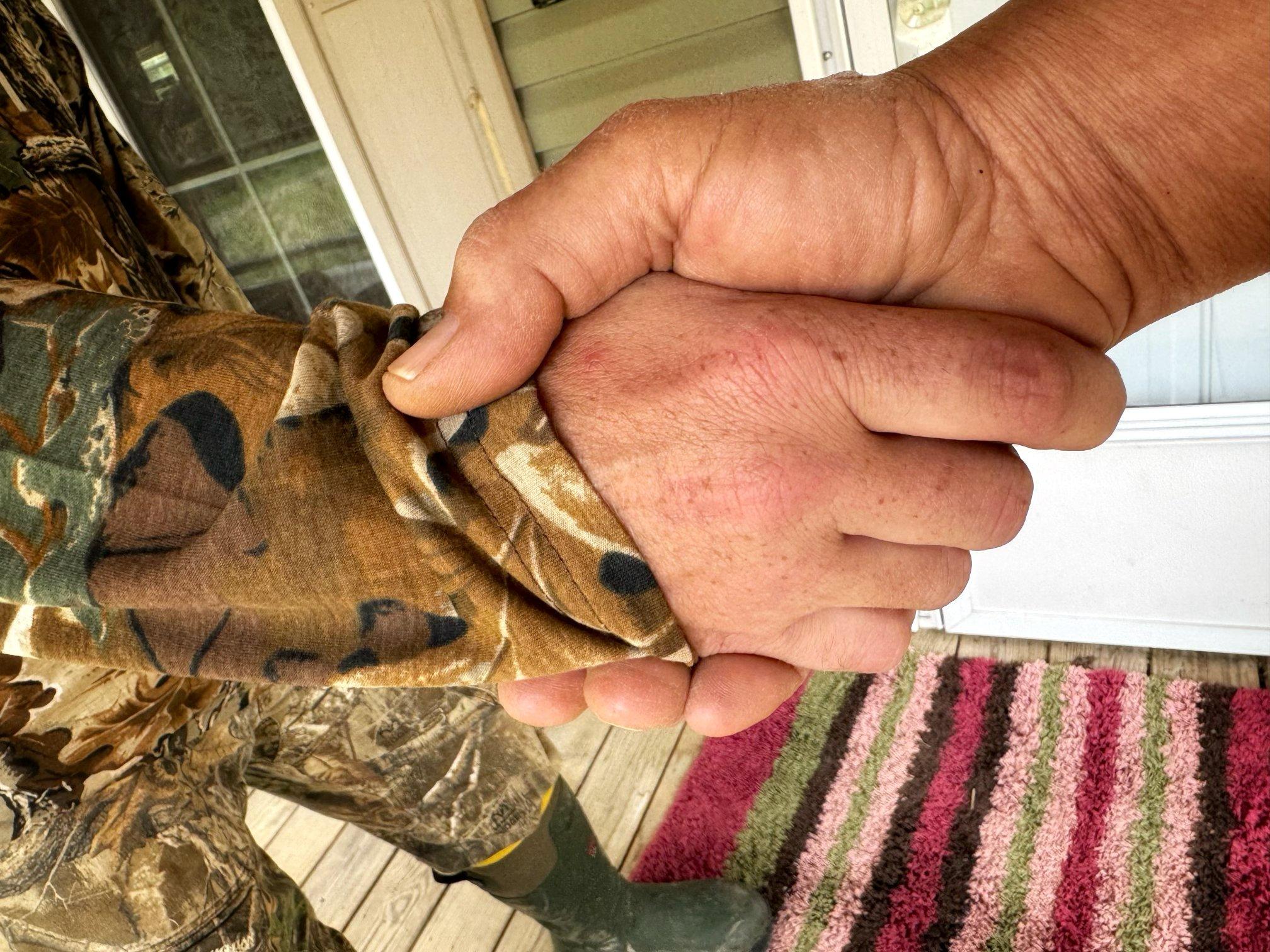
Handshake permission can still be obtained if you go about it the right way. Image by Bill Konway
There are still plenty of receptive landowners — even ones who deny hunting permission for deer and elk — who will grant permission to upstanding folks to chase turkeys. You simply have to be bold and make calls or knock on doors. I’ve run a high success rate on obtaining permission to hunt turkeys on private lands, so if you want to try your hand at it, pay attention to these tips.
ID THE LANDOWNER
I typically don’t ask for hunting permission without first seeing gobblers on a given property. I do a lot of scouting from roadways and try to see birds before making calls and knocking on doors. Once I see an opportunity, I make plans to connect with the landowner.
But who is the landowner? If you have one of the mapping apps such as HuntStand Pro or onX Hunt, then you have the right resource to zoom in on the property and determine who owns it. In some cases, it might be owned by a corporation or a trust, which makes it more difficult to know whom you need to talk to. Further, when multiple people own a property, they aren’t always all on the same page. It’s possible to find yourself in a drama pickle where one owner grants you permission and then another finds out and becomes very upset that you’re there. I haven’t personally had any situations that escalated, but I’ve heard stories of this happening, and so I try to avoid multi-owner parcels for that reason.
If you don’t have a mapping app with detailed land-ownership information, I suggest you purchase one. A side benefit of having an app for identifying land ownership is that it also gives you different features in which you can determine the property layout including agriculture, topography, potential roosting trees, and so on, all of which are highly beneficial when hunting a property you’ve never stepped foot on before.
CALL OR STOP IN?
Next, you must decide whether you will visit the landowner in person or call them. I believe in-person visits are generally best because you’re not just a voice they’ve never heard before. Connecting a human image to your request to hunt boosts your odds, especially if you’re friendly and well-kept. That being said, a physical residence isn’t always located on the property, which means you’ll have no choice but to dig up a phone number and make a call.
***Don’t Miss: *THE 28 GAUGE IS TAKING OVER THE TURKEY WOODS
I utilize whitepages.com to obtain phone numbers. The free version provides landline info, but the premium version, which costs about $5 a month, provides mobile numbers too. The numbers listed occasionally don’t match up with the individual you are trying to contact. A number might be registered to a family member or other entity. Sometimes there are multiple numbers listed, which usually means that at least one of them is no longer in service. I click on each number associated with the individual, which shows who the number is registered to before I call.
Unless a residence is blatantly obvious and located on the property I want to hunt, I typically call first. I explain who I am and where I live, and then I articulate my reason for calling. If the landowner is on the fence about whether or not to grant permission, I offer to visit in person so that they can meet me. This boosts my odds.
JUST BREATHE
Being an introvert, I’m naturally a little bit nervous about calling a perfect stranger or knocking on his or her door. However, I talk myself through it and remember that the worst that has ever happened is that I’ve been denied. I’ve never been addressed with a gun or any of that nonsense. I believe that is due to my demeanor and approach, which we’ll discuss in the next paragraph. I have experienced some very abrupt declines over the phone. Inhale deeply, hold, and exhale a few times before you walk up to the door or hit dial. People generally aren’t very scary.
BE POLITE AND RESPECTFUL
When I pull up to a residence, I always choose a prominent place to park. I don’t want to surprise anyone. I portray an unsuspicious posture and walk at a normal leisurely pace. If a dog or several come running toward me, I don’t panic or exhibit fear. Rather, I try to de-escalate the encounter by talking in a calm, friendly voice. I usually don’t make immediate eye contact with dogs or try to pet them. I just want my voice to make them feel like I’m not a threat. Then, using my own judgment, I will pet the dog if I sense it is safe to do so.
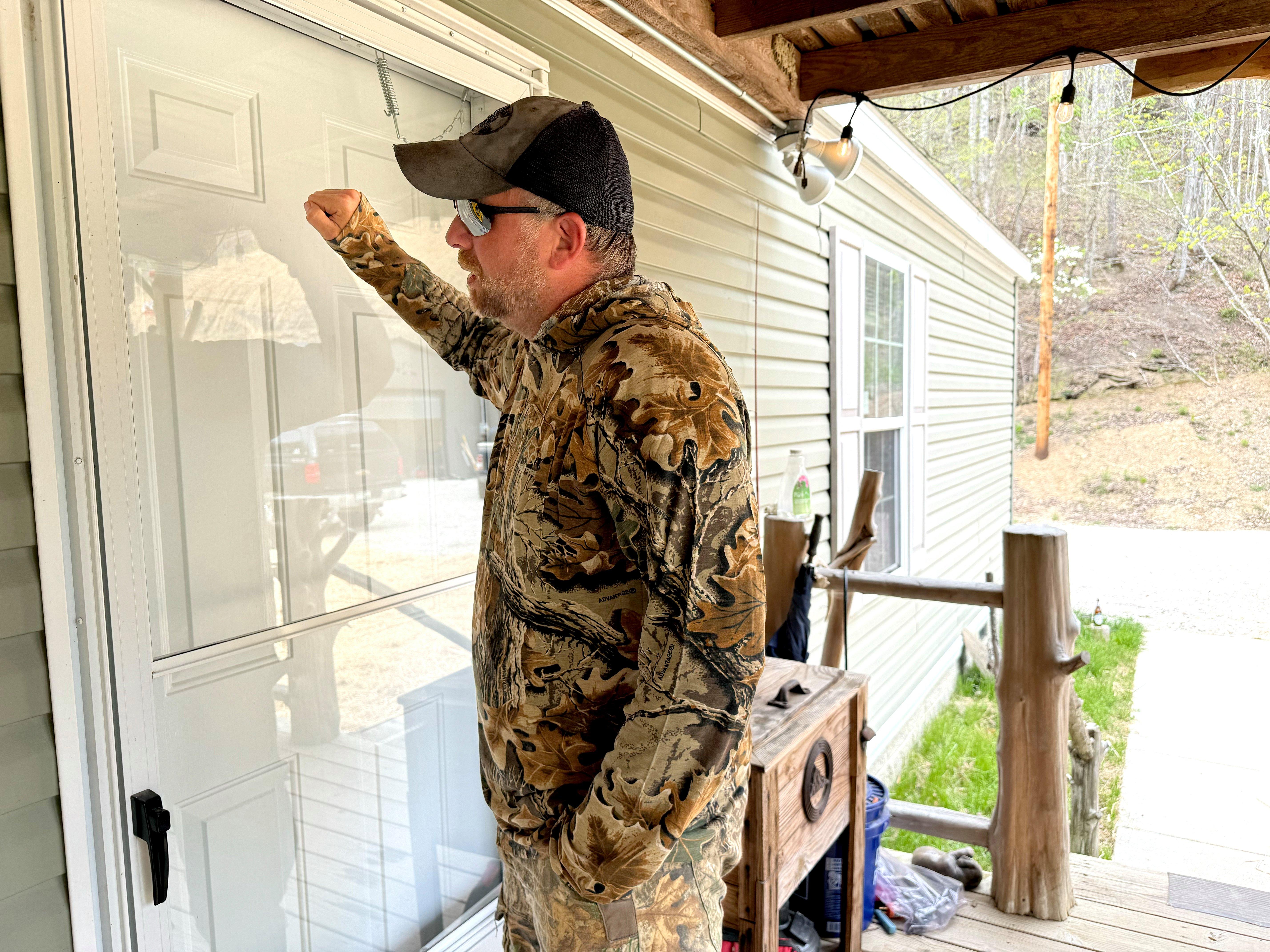
Be polite and respectful when approaching a landowner for permission to hunt their property. Image by Bill Konway
When I knock on someone’s door, I back away a step or two and turn sideways so that I don’t appear to be looking in the house. I make sure that my hands are visible so that someone can plainly see that I’m not wielding a weapon.
I warmly greet the individual who opens the door, and if it visibly is someone of the opposite gender of the landowner or a child, I kindly ask if so-and-so is home. Once I’m talking to the landowner, I explain who I am and where I’m from and then ask if it’s possible to hunt turkeys on their land. I’m asking them for something, so I’m prepared for them to ask something of me in return. They might need help with a chore or project, and you must be willing to return the favor. Usually, they don’t, but I’m prepared to roll up my sleeves if they do.
Something I didn’t mention yet is that appearance is important. If I’ve just been hunting elsewhere and I’m wearing my camo, I typically remove my bino harness. I don’t want to imply that I’m armed, suspicious or intimidating. While I have no problem knocking on a door in camo clothing, I prefer to wear street clothes if I have them in the vehicle. Streetwear reduces any preconceived notions that the landowner might form about you. You have to remember that not every hunter is respectable; the landowner in question may have had previous negative experiences with hunters. If they see that you’re put together and well-kept, it helps your cause.
ACCEPT “NO” WITH GRACE
A landowner might deny you permission to hunt for various reasons. It could be due to previous hunters who littered, created tire ruts in a driveway, or drove over crops. Or, it could be that someone else is already hunting. You might get an elderly lady who loves to watch the turkeys in the field behind her home. Or, you could get an anti-hunter who flies off the handle upon hearing your request. You just never know.
***Don’t Miss: *3 CLASSIC FRICTION CALLING TRICKS TO TRY THIS TURKEY SEASON
The important part — regardless of the reason for denial — is that you portray the same kind, polite and upstanding character you did when you approached. Don’t act upset or disgusted. This would give an anti-hunter or even a non-hunter the wrong impression of hunters and hunting. It also might jeopardize future opportunities. I’ve had one or two instances when I was told I couldn’t hunt. While maintaining my genuine, warm character amidst the denial, I made small talk, and by the time I walked away, the no became a yes.
No one wins when you act upset or disgusted, so treat the landowner the same way regardless if you get a yes or a no.
RESPECT THE LAND
Now, when you are granted hunting permission, don’t forget to ask the landowner some follow-up questions. Ask where they prefer that you park. Blocking the wrong gate or driveway is a fast track to losing permission. Also, make sure the landowner knows when you’ll arrive. During spring turkey season, dawn comes early, and you might have to be at the property at 3:30-4 a.m. in order to hike out and get set up before dawn. Make sure that arriving that early is OK.
From there, be observant and treat the land respectfully. Don’t litter. Don’t drive where you aren’t supposed to. Treat any other hunters you encounter who also have hunting permission with respect even if they don’t reciprocate. Don’t shoot in unsafe directions. You get the point. And if something happens you didn’t intend — you make a tire rut or break a fence — be truthful with the landowner and tell them that you’ll fix the mistake right away on your dime. If you aren’t forthcoming, you’ll likely lose permission when they find out what you did.
KEYS TO THE KINGDOM
In turkey hunting, the grass usually is greener on the other side of the fence, especially if you’ve beat the bushes on pressured public lands with no cigar. A gobbler might hang up just across the boundary from where you’re allowed to hunt, or you might see a field full of gobblers as you drive home following your eventless morning of hunting.
Regardless, turkeys on someone else’s property are forbidden fruit. But sometimes all it takes to make the forbidden fruit fair game is a door knock or phone call guided by the principles we’ve discussed above.


